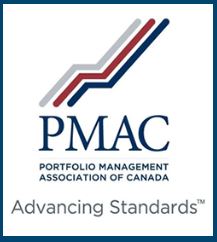Almost Halfway Through 2019: Perspective
While the first half of 2019 clearly improved on the second half of 2018. For the most part, financial markets, at least the 4 represented in the above chart: S&P 500, All Country World Index ETF (ACWI,), S&P/TSX and the Canadian Bond Index ETF (XBB) have pretty much gone sideways over the past year and a half. The S&P 500, clearly displaying the most volatility, for the moment has offered the best total return (according to Bloomberg TRA, daily analysis) with an annualized 8.87%. That may be a little tenuous, if as we suspect, volatility continues. A little more on that in a minute.
A fully invested balanced (60/40) portfolio with some Canadian equity exposure (which most Canadians have too much of as a result of "home country bias") some global equity exposure (ACWI) and some bond exposure (XBB), probably has seen somewhere in the vicinity of a 4 to 4.5% annualized return (again using Bloomberg TRA, daily analysis), depending on your asset allocation: if you had more bonds, you likely did slightly better as XBB has returned an annualized 5.2% total return since the beginning of 2018.
For the most part that is what is supposed to happen with a balanced portfolio: bonds and fixed income assets are intended to reduce the volatility (noise) from risk assets, like stocks, over shorter time frames.
Over longer time periods, short-term volatility becomes even further subdued as annual averages become more entrenched:
As an example, one of our long standing High Rock private clients (with me from before my High Rock days) can boast an after fees and costs multi-year (records back to October 2012) annual average return of 6%, with a return of about 0% over the last 12 months, in a balanced and diversified portfolio:
The down-ticks along the way become minute in the grander scheme.
Nonetheless, as I have often discussed in this blog, we are all human beings and we have our own sets of biases developed through our experiences and of course, the media bombardment that we receive. It is easy to get caught up in all the short-term noise, especially when it is so loud (at this particular moment in time).
As a manager of people and their wealth, we also have a role in managing peoples expectations.
Volatility will continue, there is no shortage of political, economic and environmental uncertainty, perhaps now at multi-year highs. Stock market bulls and cheerleaders think that the U.S. Fed and other central banks will bail them out. We believe that economic and earnings fundamentals could spoil the party.
We can sit passively by and endure it (but don't be peeking at your portfolio performance through this period), or we can ready ourselves to take advantage of it.
We encourage a little of both in our strategies, which means that we are a carrying a little more than average cash equivalent (very liquid) assets that can be deployed when (and if) turbulence from uncertainty unseats stocks and better prices and values unfold.
Our High Rock Private Clients don't have to pay much more than they would for passive portfolios (robo, etc.), but they do have us available for conversation when (and if) they take a quick peek at their portfolio values in a volatile time and become unnerved.
And, of course, past performance (as in the above client performance chart) is no guarantee of future returns, but at High Rock, we work darn hard to get our clients the best possible risk-adjusted returns as is possible.
Wishing you all a Happy Canada Day!!










